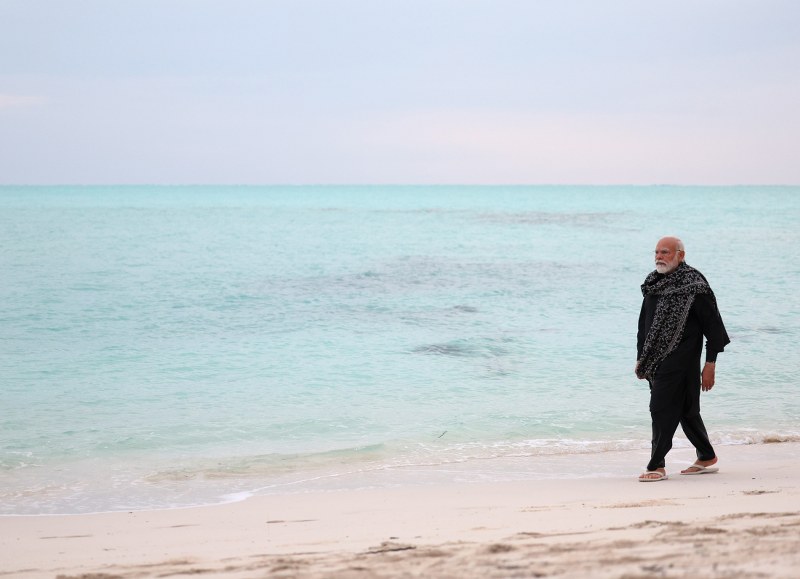In an unprecedented move, Indian Prime Minister Narendra Modi has employed ‘photo diplomacy’ in a strategic maneuver addressing the Maldives’ call for the removal of Indian military forces from its territory. This move comes as a response to the Maldivian government’s assertive stance on safeguarding its sovereignty, challenging India’s influence in the region.
The focal point of this diplomatic strategy was Prime Minister Modi’s visit to Lakshadweep, an Indian archipelago situated in the Arabian Sea. During this visit, Modi actively engaged in a social media campaign, sharing numerous photographs of the picturesque island. These posts, which were aimed at promoting tourism in Lakshadweep, quickly gained traction among the Indian audience, spreading rapidly across various social media platforms.
This digital initiative by the Indian Prime Minister had a ripple effect, extending beyond the Indian audience to the Maldives. The reaction in the Maldives was immediate and noticeable. Three Maldivian ministers openly criticized Modi’s photographs, calling them ‘in bad taste’ and questioning the underlying intent of Indian hospitality. This sentiment was mirrored by the Maldivian public and further amplified by the actions of Indian tourists and celebrities who, influenced by Modi’s posts, began canceling their trips to the Maldives in favor of visiting Lakshadweep.
The diplomatic tensions escalated with the Maldives’ President announcing significant policy shifts. In a clear move to distance the nation from Indian influence, he declared the return of Indian soldiers stationed in the Maldives. Further straining the bilateral relations, the President stated that the oceanography agreement between India and the Maldives would not be renewed. This decision signifies a major shift in the Maldives’ foreign policy and its approach to regional alliances.
In a symbolic move underscoring this new direction, the Maldivian President chose Turkey for his first bilateral visit, bypassing India. This decision was not just a diplomatic choice but also a statement of intent, reflecting the ‘Maldives First’ policy, a clear departure from the previously India-aligned stance. This shift in foreign policy priorities marks a new chapter in Maldives-India relations and highlights the growing complexities in the geopolitics of the South Asian region.
